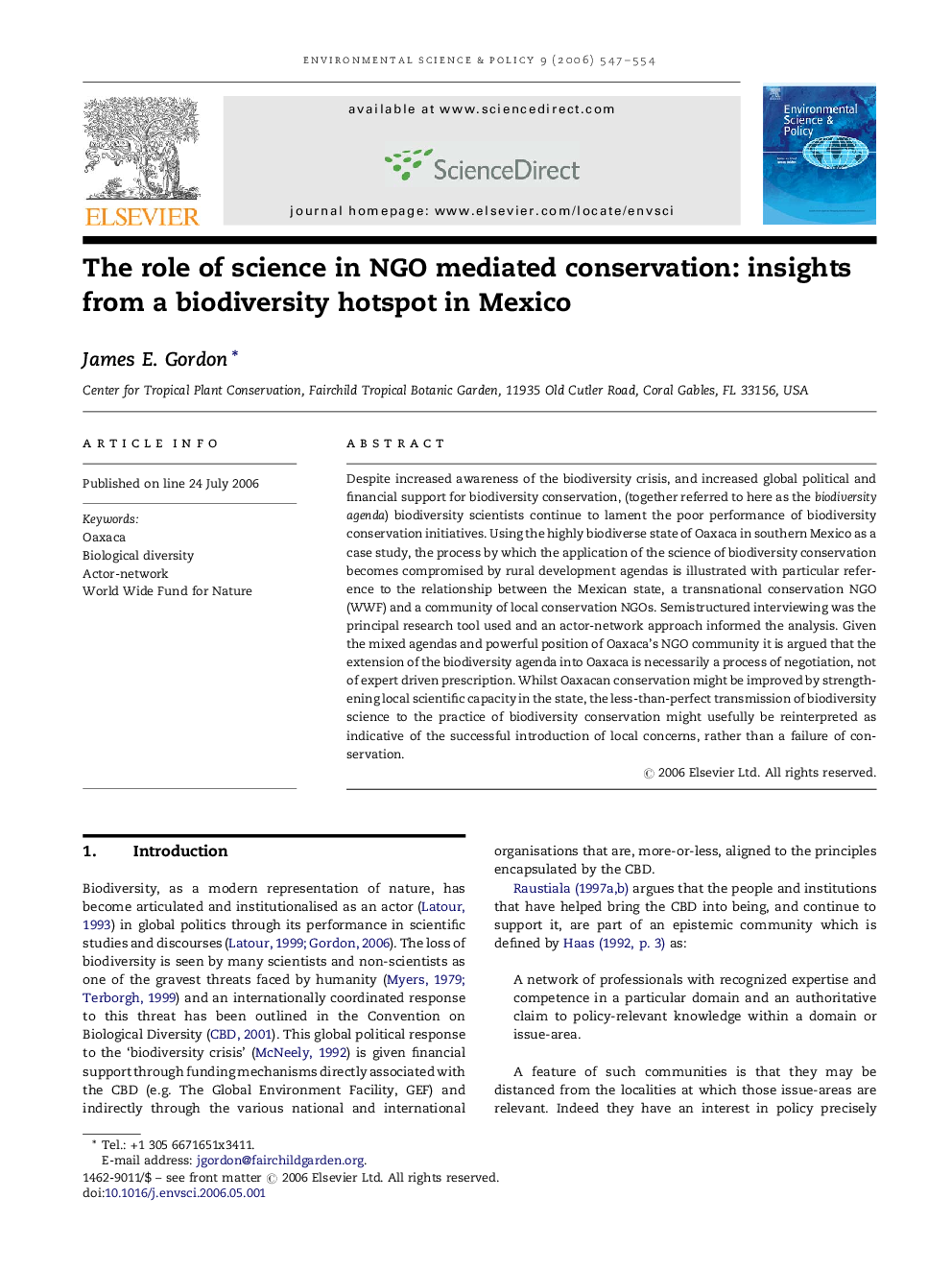| Article ID | Journal | Published Year | Pages | File Type |
|---|---|---|---|---|
| 1054380 | Environmental Science & Policy | 2006 | 8 Pages |
Despite increased awareness of the biodiversity crisis, and increased global political and financial support for biodiversity conservation, (together referred to here as the biodiversity agenda) biodiversity scientists continue to lament the poor performance of biodiversity conservation initiatives. Using the highly biodiverse state of Oaxaca in southern Mexico as a case study, the process by which the application of the science of biodiversity conservation becomes compromised by rural development agendas is illustrated with particular reference to the relationship between the Mexican state, a transnational conservation NGO (WWF) and a community of local conservation NGOs. Semistructured interviewing was the principal research tool used and an actor-network approach informed the analysis. Given the mixed agendas and powerful position of Oaxaca's NGO community it is argued that the extension of the biodiversity agenda into Oaxaca is necessarily a process of negotiation, not of expert driven prescription. Whilst Oaxacan conservation might be improved by strengthening local scientific capacity in the state, the less-than-perfect transmission of biodiversity science to the practice of biodiversity conservation might usefully be reinterpreted as indicative of the successful introduction of local concerns, rather than a failure of conservation.
